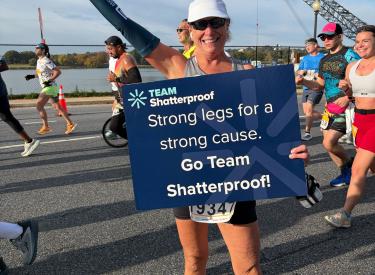
Veterans Need Better Access to Treatment
This Memorial Day, I’m grateful for my recovery from opioid addiction. And I’m especially grateful that my family had access to resources to send me to a high-quality treatment center when I needed help.
I finally got this treatment only after I went through the challenges of seeking care with the U.S. Department of Veterans Affairs. Like many veterans, I have not utilized any VA healthcare services because the wait times are excessive, especially in an urgent time of need. In my moment of desperation, when I was ready to receive the help I so urgently needed, my requests fell upon deaf ears. I often wonder if I had expressed my suicidal ideation, if I would have received help and my family would not have had to spend tens of thousands of dollars from their retirement on my addiction treatment.
In November of 2014, I sought out help at the VA in Lyons, New Jersey. After years of using opioids both prescribed and illegal, the substances stopped working and I no longer found the comfort that I had once received, soothing my loneliness and the physical pain from injuries I received while on active duty. Walking through the doors, I was ill and experiencing withdrawal.
I was met by a kind woman, but due to the widespread lack of education on how to treat substance use disorders, she didn’t know where to send me or what to do. She told me she couldn’t help me there. I was told to try my luck at the East Orange VA substance use program.
As a young woman in unfamiliar territory, I was uncomfortable seeking treatment with a predominantly male population. This was one of the many barriers to accessing treatment. Just getting to the VA in Lyons was challenging enough, I didn’t have it in me to drive to the East Orange location, or to pick up the phone again. I walked out of the VA left on my own with no warm handoff, no answers, scared, confused, disheartened, and frustrated.
During this time, I was working for the VA. I did not seek help through the employee assistance programs out of fear of the stigma and the judgment that would be placed on me. As veterans, we are taught to be strong. My inner narrative was that I could do things on my own. Am I weak? Would anyone ever trust me again? I thought plenty about my reputation, how it could have an impact on my career, and the shame it could bring to my loved ones.
My story isn’t meant to blame anyone, but rather to shed light on the places where we must do better.
Today, I tell my story so that other people seeking recovery—veterans, college students, people of color, family members, loved ones, professionals—can learn and be proactive about seeking support services. Addiction does not discriminate. Just remember, treatment is not a linear process. Recovery is multidimensional, and there are many services to meet a person where they are.
Do you or a loved one need help? Here are some places to start your search.
- If you do not have access to treatment, try a withdrawal management program (also known as "detox") and then a recovery house. Join the Recovery Housing Facebook page to connect with others interested in recovery housing.
- Connect with a peer recovery support specialist. Talking with someone who knows what you’re going through can make you feel connected and supported through the process. They may have local resources to better help you get the services needed.
- If you are a college student, check out collegiate recovery programs.
- Get to a free 12 step meeting to connect with others. You do not have to share if you don’t want to. There are many available today for all pathways of recovery. SAFE Project hosts the Veterans Virtual All Recovery Meeting every Thursday at 6 pm EST.
In honor of Memorial Day, I want to share my experience and these helpful resources with other veterans, and all Americans in need of addiction treatment. I know firsthand: With the right treatment, veterans can recover from substance use disorders. There is hope, and today, I am grateful.
Sazha Ramos is an Asian American woman and Navy veteran in recovery from a substance use disorder. Ramos is the co-founder of two recovery residences in Louisiana and is currently leading SAFE Project, a national nonprofit dedicated to addressing the addiction epidemic, to create the first-ever national recovery housing locator.




